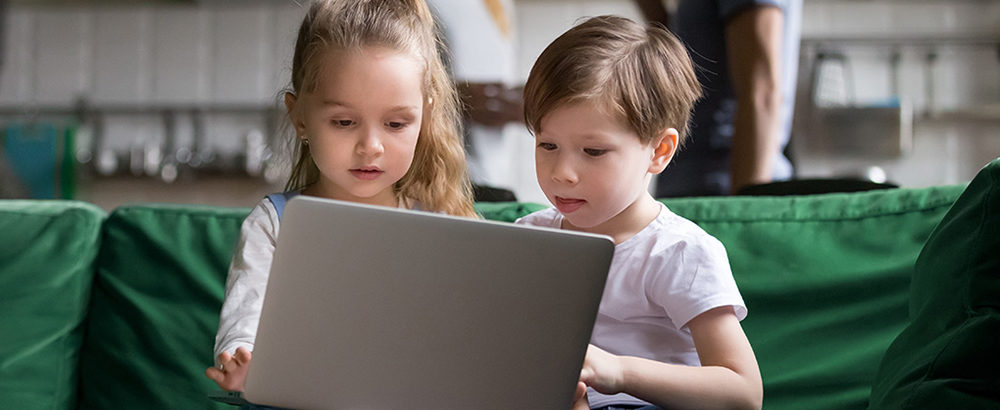By Permanente Medical Staff
With darkness falling early and cold weather often making it unpleasant to be outside (and causing school closures), your kids are apt to spend more time in front of screens during the winter, using phones, computers, TVs, and other electronics and filling their hours with games and social media.
While media and digital devices are an integral part of our lives today, research has shown that face-to-face time with parents, family, and friends is even more important in promoting your child’s healthy development. By thinking creatively and being proactive, you can ensure that your kids enjoy a wintertime filled with fun, unplugged activities and family connections.
Make a Plan
Start by talking with your kids and creating a media use plan that you can all agree upon, then stick to it. The American Academy of Pediatrics offers a useful template at HealthyChildren.org., including a digital time calculator. Much like the way you plan your child’s nutritional diet – ensuring lots of healthy fruits, vegetables, proteins and grains, and limiting treats and desserts – you should be intentional about your kids’ daily “activity diet.” Prioritize those activities that are important for healthy development: eight to 10 hours of sleep a day and one hour of daily exercise, plus family time, outdoor play, reading, and hobbies. Then create space in the daily schedule for the “dessert” of screen time and be consistent in enforcing daily limits.
Get Outside Together
A nightly walk can be a fun and easy way to get outside and get exercise. To keep the kids engaged, create a scavenger hunt-type list and bring flashlights. One night you could focus on spotting (and hearing) different types of animals: squirrels, owls, dogs, and cats. Another night could be devoted to scents (fireplace smoke, pine, etc.) or sounds (barking dogs, a siren, branches creaking). On weekends, head to your nearest park for a nature walk. Buy a bird book and encourage your kids to keep a list of the feathered friends they spot. End each night (or day) walk by enjoying a warm mug of hot cocoa together.
Get Your Game On
Winter is the perfect time to break out the board games that have been gathering dust in the closet. For preschoolers, board games offer a fun way to learn to follow rules, focus, and take turns. For older kids, these games offer a chance for healthy competition and face-to-face interaction. Old-fashioned favorites like Monopoly and Risk can be strung out over several nights or long afternoons. Or keep things interesting by having a running “tournament” (chess, checkers, backgammon), with results posted nightly. Share the fun by inviting other families over for “Game Night” and ask them to bring their favorite game to share.
Set Up a Creative Corner
Tap into your kids’ inner artist by creating a space for them to draw, color, paint, sculpt, or construct each and every day. Just as schools have begun recognizing the value of providing a “Maker Space,” you can help your children unleash their creativity by setting aside time and providing the resources they need to create and build.
Encourage Your Bookworms
Cold weather offers a cozy time to curl up with a good book. The most important thing you can do to encourage your kids to love reading is to read aloud to them, notes the American Academy of Pediatrics – even after they know how to read for themselves. Plan a weekly trip to the library and encourage your kids to use the hour you spend there choosing reading material from a wide variety of genres: poetry, nursery rhymes, fairy tales, science fiction. Whether they are 4 or 14, help them seek out some non-fiction books or magazines that speak to their passions – baseball, dinosaurs, bugs, or the American West. Find a book series that appeals to the whole family and carve out time each night for a family read-aloud hour, with family members assigned different characters to read.
Tap into the Power of Play
For kids of all ages, unstructured play is serious business – helping them build thriving brains, bodies, and social bonds. In fact, many pediatricians have begun to write a “prescription for play” for kids of all ages. The key is to create an opportunity for your children to take the lead and follow their own curiosity. The “tools” you provide don’t have to be flashy or fancy. Instead, by simply equipping them with boxes, blankets, and chairs, kids can spend hours building a fort in the family room. Or put together a basket of “grown-up” clothes or inexpensive props or costumes from the local secondhand store and encourage your children and their friends to put together a production to perform for the family.
Keep an eye on the weather forecast: Whenever the temperatures permit, make plans to meet up with other families at the local playground or ball field and let the kids run wild together. Unstructured play, inside or outside, has the added benefit of being a stress-buster. According to the American Academy of Pediatrics: Kids who engage in play, build safe and nurturing relationships that protect against stress and help build social-emotional resilience.
Safeguard Screen Time
When your kids do spend time enjoying the “treat” of screen time, there are steps you can take to ensure their safety and prevent negative outcomes. Co-viewing or co-playing a video game with your children is one helpful way to stay engaged and give you a better idea of how your kids are spending their time. And younger kids learn better from media when they share the experience with an adult, according to the American Academy of Pediatrics. Stay plugged in to who your child is playing with online, as well as the software, apps, and websites they are visiting. Make sure TVs and mobile devices are turned off at least an hour before bedtime, since the blue light can interfere with sleep. Recharging devices overnight in the kitchen or living room will ensure kids aren’t tempted to wake up and use their devices in the middle of the night. Above all, be a good digital device role model and limit your own use so that you can be engaged during the time you spend with your kids (meal times, car trips, vacations) – not staring at your screen.
To find out more about strategies for positive parenting, visit MAPMG’s Staying Healthy pages.




